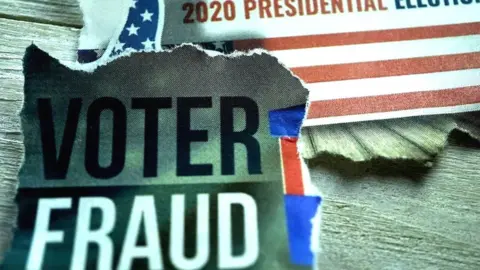BBC News Explores Claims of a Rigged Election in the USA

| Introduction |
| The 2020 U.S. presidential election stirred up a whirlwind of debates, theories, and headlines, with claims of a “rigged” election echoing through social media and mainstream news. BBC News, a respected international media outlet, has covered these controversies extensively. But what’s really going on? Let’s dive into the layers of this issue. |
| Understanding the Context |
| Historical Background |
| Elections in the U.S. have always had their fair share of disputes. From the infamous Florida recount in 2000 to the accusations of voter fraud in various states, history shows that https://tnchronicle.com/ integrity has often been questioned. But 2020 took it to a whole new level. |
| Recent Developments |
| In the aftermath of the 2020 election, numerous allegations surfaced, claiming widespread fraud and manipulation. Investigations were launched, and the media, including BBC News, reported on everything from anecdotal evidence to court rulings. |
| Key Players Involved |
| Political Parties |
| Both major political parties, Democrats and Republicans, have been at the forefront of the election narrative. While Republicans voiced concerns about election integrity, Democrats countered these claims, advocating for the security and fairness of the electoral process. |
| Media’s Role |
| Media outlets played a pivotal role in shaping public perception. BBC News, along with others, provided analysis and coverage that aimed to separate fact from fiction, but the lines often blurred amid sensational headlines. |
| Analyzing Claims of Rigging |
| Types of Allegations |
| The claims ranged from dead voters casting ballots to voting machines being tampered with. Each claim sparked debates, discussions, and deep dives into the veracity of the evidence presented. |
| Evidence or Lack Thereof |
| Despite the flurry of allegations, investigations found little substantial evidence supporting the rigging claims. Courts dismissed numerous lawsuits for lack of credible proof, which left many questioning the motives behind the allegations. |
| The Impact of Misinformation |
| Public Perception |
| Misinformation has a sneaky way of settling into public consciousness. Polls indicated a significant portion of the population believed the election was “stolen,” leading to polarization and distrust in the electoral system. |
| Social Media’s Influence |
| Social media platforms became hotbeds for misinformation. The speed and reach of false narratives amplified doubts about the election, often faster than accurate information could be disseminated. |
| The Legal Perspective |
| Court Cases and Outcomes |
| A series of court cases were filed to contest the election results, but most were swiftly dismissed. Judges across the country, appointed by both parties, found little evidence of wrongdoing, reinforcing the idea that the election was fair. |
| Regulatory Bodies |
| Organizations like the Cybersecurity and Infrastructure Security Agency (CISA) declared the 2020 election as the “most secure in American history.” This assertion challenged the narrative pushed by some political figures and added a layer of credibility to the election process. |
| International Reactions |
| Comparison with Other Elections |
| The allegations of rigged elections in the U.S. drew comparisons to other countries with less stable democracies. Observers pointed out that claims of election rigging are often seen in nations with ongoing political turmoil. |
| Diplomatic Responses |
| Other nations watched closely, some expressing concern over the integrity of American democracy. Diplomatic responses varied, with some leaders supporting the claims and others emphasizing the need for unity and trust in democratic institutions. |
| Conclusion |
| The narrative around the 2020 election being “rigged” is a complex tapestry woven from historical grievances, political maneuvering, and the rapid spread of misinformation. While many claims have been debunked, the fallout continues to affect American politics and public trust in elections. Moving forward, it’s essential for both media and individuals to prioritize truth over sensationalism in order to heal the divides and reinforce the democratic process. |

